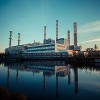News for journalists 2016
How fair are countries’ climate pledges?
Benchmarks to guide countries in ratcheting up their ambition to limit climate change to well-below 2°C and pursue 1.5°C in an equitable manner are critical, but not yet determined in the context of the Paris Agreement. More
Integrated approach vital for fisheries management
A comprehensive perspective on evolutionary and ecological processes is needed in order to understand and manage fisheries in a sustainable way. More
Study maps the climate impact of agriculture
A new study provides the first global assessment of greenhouse gas emissions from croplands, showing the relative impact of different crops and management practices on climate change. More
Sustainable Development Goals lead to lower population growth
Achieving the Sustainable Development Goals would significantly slow population growth, according to a new study. More
Game theory provides new insight on spreading environmentally conscious behavior
The simple act of exchanging information can influence people to change their actions to protect the environment, according to a new study that links game theory with psychological science. More
Climate, human influence conspired in Lake Urmia’s decline
A combination of climate change and water usage are responsible for the staggering drying of Lake Urmia, what was once the second largest salt lake in the world. More
Informing action on a historic climate agreement
The Paris Agreement on climate change goes into effect today, but while the agreement set ambitious targets for tackling climate change, scientists say there is a long way to go to achieve it. Research suggests pathways to get the world on track. More
Biodiversity needs citizen scientists
Could birdwatching or monitoring tree blossoms in your community make a difference in global environmental research? A new study says yes: citizen scientists have a vital role to play. More
Risk analysis for common ground on climate loss and damage
The Paris Agreement included groundbreaking text on the need for a mechanism to help identify risks beyond adaptation and support the victims of climate-related loss and damage—but how exactly it will work remains unclear. New IIASA research lends insight to policymakers on how to move forward. More
Reducing ammonia pollution from cattle
Agriculture is responsible for 90% of all ammonia pollution in Europe, a considerable part of which comes from cattle manure management: a new study shows what steps to take to reduce this pollution. More
Improving air quality in Delhi
Tackling air pollution in Delhi requires a smart mix of measures not only within the city, but also in the surrounding states. More
Handgrip strength provides a new window to health
A simple test of grip strength could provide a quick and inexpensive screening tool for health practitioners, according to a new study from IIASA population researchers. More
Global temperature rise could hit 2°C threshold by 2050
Without additional action and advanced technologies, global emissions are expected to be 33% above the 2°C pathway in 2030, according to a new report from a group of leading international scientists including IIASA Deputy Director General Nebojsa Nakicenovic. More
IIASA launches citizen science observatory
European citizens will soon be able to directly contribute to the analysis of land use change in Europe and beyond. A new observatory established by IIASA and funded by the EU Horizon 2020 program will combine satellite images with data collected by citizen scientists around Europe. More
New study assesses human capital of asylum seekers
Who are the refugees who fled to Austria in the fall of 2015? In a new study, researchers have assessed the skills, attitudes, and values of asylum seekers and refugees who arrived in Austria last summer and fall. More
Modeling study sheds light on disease eradication
Diseases evolve in response to treatment, frustrating efforts to eradicate them. A new study shows how evolution, population dynamics, and economic factors interact, providing new insight that could help inform efforts to control diseases like malaria. More
Wicked trade-offs between environmental SDGs and food security
A new analysis examines the interconnections between the Sustainable Development Goals, identifying policy pathways that lead to trade-offs, and others that could bring benefits on multiple fronts. More
New population data provide insight on aging, migration
A new data set provides a comprehensive look at population dynamics in Europe, including the influence of migration on population growth and the effect of population aging. More
Making sustainability pay
The private sector has a major role to play in achieving the sustainable development goals, argue experts from the Alpbach Laxenburg Group. More
Can palm oil be sustainable?
A new study shows to where and to what extent palm oil plantations could be expanded, while avoiding further deforestation in pristine and carbon-rich tropical forests. More
Managing an endangered river across the US-Mexico border
A new IIASA study shows how improving communication and involvement could bring consensus solutions for the embattled Rio Grande/Bravo, which is shared between the USA and Mexico. More
Country pledges overshoot Paris temperature limit
Individual country pledges to reduce greenhouse gas emissions would need to be strengthened in order to limit future climate change to well below the 2°C limit included in the Paris climate agreement, according to a new assessment. More
To reduce deaths from air pollution, boost energy investment
Energy is the main contributor to air pollution that kills millions each year, but a 7% increase in energy investment could cut the death toll by as much as half by 2040, according to a new report from the International Energy Agency (IEA), to which IIASA researchers contributed significantly. More
Better soil data key for future food security
Future food security depends on a variety of factors – but better soil data could substantially help improve projections of future crop yields, a new study shows. More
A new partnership for migration research
The International Institute for Applied Systems Analysis (IIASA) and the European Commission's Joint Research Centre (EC-JRC) have launched a new research partnership to provide science-based knowledge on migration and demography to support EU policy. More
Climate consequences of oil price uncertainty could be significant
Oil prices can have a major impact on the types and quantities of energy sources used—and thus on greenhouse gas emissions. A new study from researchers at IIASA and the World Bank is the first to quantify the energy and emissions impacts of future fuel prices and the various unknowns these impacts depend on. More
Increased bioenergy demand to put pressure on forests
A new study shows that increased demand for biomass for energy in Europe, through intensified use of existing forests, could lead to loss of biodiversity and high competition for wood between sectors, and proposes policies to help preserve biodiversity while also limiting greenhouse gas emissions. More
Focus on energy independence will not save the climate
Reducing energy imports and mitigating climate change are often portrayed as complementary. However, new research shows that while ambitious climate policies would lower energy imports, energy independence would not bring significant climate benefits. More
European identity continues to grow
Despite the recent crises in the EU, citizens increasingly identify themselves as European compared to recent decades. This is according to a new study by IIASA researchers which confirms forecasts they made in a 2006 study and brings further insight to the demography of European identity. More
A record-breaking year for renewable energy
Renewables are now firmly established as competitive, mainstream sources of energy in many countries around the world, according to a new report from an international consortium focused on energy policy. More
New study sets climate target for agriculture
In order to meet the goals set by the Paris climate agreement, agriculture will need to reduce emissions substantially. In a new study researchers propose a target for greenhouse gas emissions from farming that could meet those goals. More
The transformative power of cities
A new report from the German Advisory Council on Global Change examines the trend of urbanization and its implications for sustainability. More
How much does groundwater contribute to sea level rise?
Land water, including groundwater extraction, contributes far less to sea level rise than previously thought, according to a new study. More
Protecting fisheries from evolutionary change
Evolutionary changes could lead to reduced fishery yields. A new IIASA study shows how alternative management practices could mitigate the problem in a key North Sea fishery. More
Could off-grid electricity systems accelerate energy access?
Small off-grid electricity systems are growing rapidly in South Asia. A new study provides the first assessment of how these systems are impacting communities in the region. More
1.5°C vs 2°C: Why half a degree matters
An average global temperature rise of 1.5°C or 2°C over the coming century would have substantially different impacts on the planet, according to a new study. More
Climate change threatens already volatile Lake Urmia
Climate change is likely to worsen the situation of the drought-stricken hypersaline Lake Urmia in Iran, even in the most optimistic climate change scenario and without any further human impact. More
Multiple perspectives for better risk management
A study of landslide risk in Italy engaged citizens and experts in new ways, to generate solutions that everyone can stand behind. More
Drinking water: Carbon pricing revenues could close infrastructure gaps
More than 700 million people have no running water. A study released today shows that a carbon tax could help remedy this situation while contributing considerably to climate protection. More
For the media: New IIASA research at EGU
IIASA researchers are presenting new research on deforestation, water resources, climate change impacts, crowdsourcing, and more at the European Geophysical Union meeting in Vienna. More
Intelligent transaction tax could help reduce systemic risk in financial networks
A new IIASA study proposes a solution for mitigating the increasingly risky nature of financial markets, based on an analysis of systemic risk in financial networks. More
Kerosene subsidies slow transition to clean energy
Reducing reliance on kerosene lighting would provide benefits but proves a stickier problem than previously thought, according to a new analysis focused on India. More
Insurance for an uncertain climate
The application of insurance as a mechanism to help vulnerable people adapt to the impacts of climate change is gaining international support. Experts support the idea but warn of potential problems. More
Livestock holds major potential for mitigating climate change
Livestock production offers a significant opportunity to mitigate greenhouse gas emissions while maintaining the economic and social benefits of the sector, according to a new study from IIASA and partners. More
Short-sighted climate policy jeopardizes other UN sustainable development goals
A new study finds that climate policies that fail to take into account interlinkages and trade-offs could hamper progress on other sustainable development goals. However, energy efficiency improvements can reap synergies between the goals. More
IIASA study assesses land-use impacts of EU biofuel policy
The indirect impacts of biofuel production on land-use change and greenhouse gas emissions in the European Union vary widely depending on the type of biofuel, according to a new study. More
Clean energy could stress global water resources
Efforts to reduce greenhouse gas emissions in the energy sector could lead to greater pressure on water resources, increasing water use and thermal water pollution. Dedicated adaptation measures will be needed in order to avoid potential trade-offs between the water and climate change impacts of the energy system. More
A lower limit for future climate emissions
A new study finds that the world can emit even less greenhouse gases than previously estimated in order to limit climate change to less than 2°C. More
IIASA research supports clean energy center for Indonesia
IIASA researchers have contributed specially tailored analysis tools to the new Indonesian Center of Excellence for Clean Energy, launched today at the Bali Clean Energy Forum. More
Pressure building on global water supply
A new study projects that global demand for water could more than double by 2050, increasing pressure on already scarce water resources. Water efficiency and water saving measures could stabilize demand. More
How will climate policy affect energy access goals?
Without new subsidies and policies to support increased energy access, new climate policies could push access to modern energy out of reach for millions in Asia. More
Worldwide electricity production vulnerable to climate and water resource change
Climate change impacts on rivers and streams may substantially reduce electricity production capacity around the world. A new study calls for a greater focus on adaptation efforts in order to maintain future energy security. More


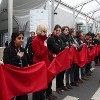
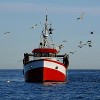
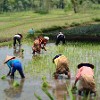






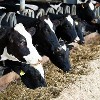


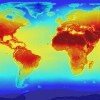

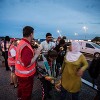
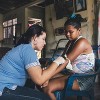
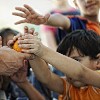

.jpg)
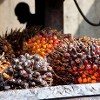
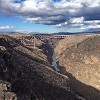

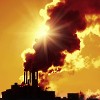


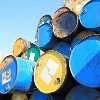



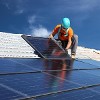
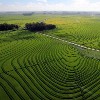

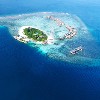


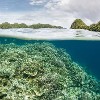


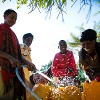

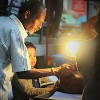



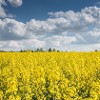
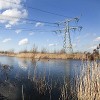
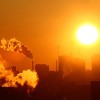
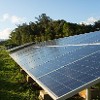
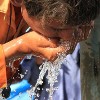
.jpg)
